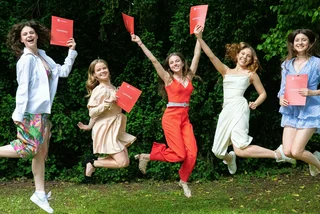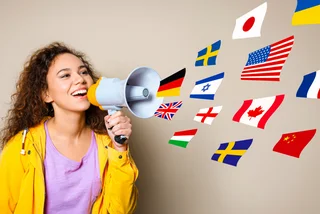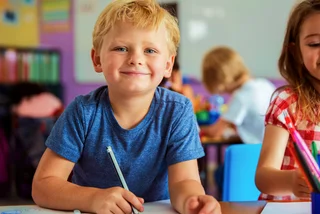Founded by Czech economist Olga Block, the BASIS International School Prague is based on the American charter school concept of the same name and pushes students to learn and achieve at a high level, preparing them for entry to top-ranked international or Czech universities.
In September 2021, the school opened for grades 0 and 1. It will add grade 2 next school year, with plans to offer a complete education for grades 0–13 in future years. BASIS will be hosting a March 1, 2022, open day to give interested families the opportunity to learn more about its full English-immersion program which hinges on a curriculum taught by subject-expert teachers in a positive learning environment.
In advance of the open-day event we spoke with BASIS’s director Steven Villafuerte and Preschool Director for BASIS Beginners Christine Foppe, who both told us more about the school’s philosophy and how the BASIS school aligns with the spiraled liberal arts and sciences standards of its US counterpart founded by the Block family in the US in 1998.
Villafuerte, who ran four different schools in the US before he came to Prague to lead academics management at BASIS, says that no matter the grade level, the success of BASIS students rests upon three pillars: its curriculum, its subject-expert teachers, and its joyful learning culture which celebrates hard work and believes that intellectual pursuits result in extraordinary outcomes.
“Each school is going to be unique and each student population is going to have its own challenges,” Villafuerte says, adding that in the Czech Republic, part of that challenge has to do with integrating students from very different backgrounds.
“Half of our students are Czech natives and half are expats from countries like Hungary, Saudi Arabia, China, India, UK, etc, so we’ve had to integrate all of those diverse cultures, which presented its unique challenges.”
This integration starts early on in their Preschool program, which accepts children as young as three years old. There, kids are taught in self-contained classrooms in a thoughtful and intentional manner that encourages them to use their imagination and creativity.
Christine Foppe, Preschool Director for BASIS Beginners, says the school has specific learning goals and objectives built into its curriculum from day one. These include not only building a strong learning foundation, but also social and emotional skills.
“These skills equip students to become lifelong learners, which is what we would like for all students that go to our school: to be happy and enjoy learning and want to be at school,” Foppe explains.
Since classes are held only in English, Czech-native students are integrated early on so they can naturally adapt to the fully immersive English experience. “We make sure that our seating chart is organized in a way that Czech students don’t sit next to other Czech students so they don’t rely on their own language to communicate,” Villafuerte explains.
“If you put students in a position where they’re forced to depend on English, that accelerates the learning and forces them to communicate in a common language.”
Foppe adds that at the preschool level, children usually acquire English rapidly, not only because of instruction from the teacher but mainly because of their peers. “Children teach each other through their conversations and interactions, by playing together, eating snacks and lunch together,” she says.
Once out of preschool, children can move on to BASIS International School, divided into grades 0-3 for the Primary Years, 4-5 for their Bridge Years, 6-8 for Intermediate, and 9-12 for High School.
“The last grade of Czech kindergarten is what we call our Grade Zero, which aligns with our US schools’ curriculum,” Villafuerte says, adding that at this point children are introduced to the elementary school system learning, where they are no longer in self-contained classrooms and instead have multiple teachers for each subject.
BASIS’s teachers are not only well-trained educators but are also experts in their fields. “For example, of our science teachers, one is a medical doctor and one is a former transportation engineer,” Villafuerte says. “We really wanted to answer the question ‘when will I use this in real life?’ So we don’t just teach arithmetic skills, but we find ways to teach a subjects’ application to everyday life.”
Part of that is done through “purposeful play,” where children get to put difficult concepts they are studying into playful practice. A good example? Villafuerte says children reading “The Three Little Pigs” in English Humanities class might build the pigs’ houses and use fans to demonstrate engineering concepts, connecting both subjects.
In the end, BASIS’s goal is to cultivate a liberal arts education that allows students to pursue any future path they might choose when it’s time to enter university. Through the school’s advanced placement program, students eventually have a chance to take a college-level course in any of the core topics – Math, English, History, and Science – so by the time they graduate, they have a better understanding of what they might want to major in.
“I feel a lot of students have trouble choosing what they want to major in and that’s because they haven’t had experience or aren't familiar with what they’re learning,” Villafuerte says.
Above all, BASIS wants its primary focus to be preparing students today for what is to come tomorrow in “a classroom culture that inspires them to think that learning is cool.”
This article was written in cooperation with the BASIS International School Prague. Read more about our sponsored content policy here.












 Reading time: 4 minutes
Reading time: 4 minutes 





































